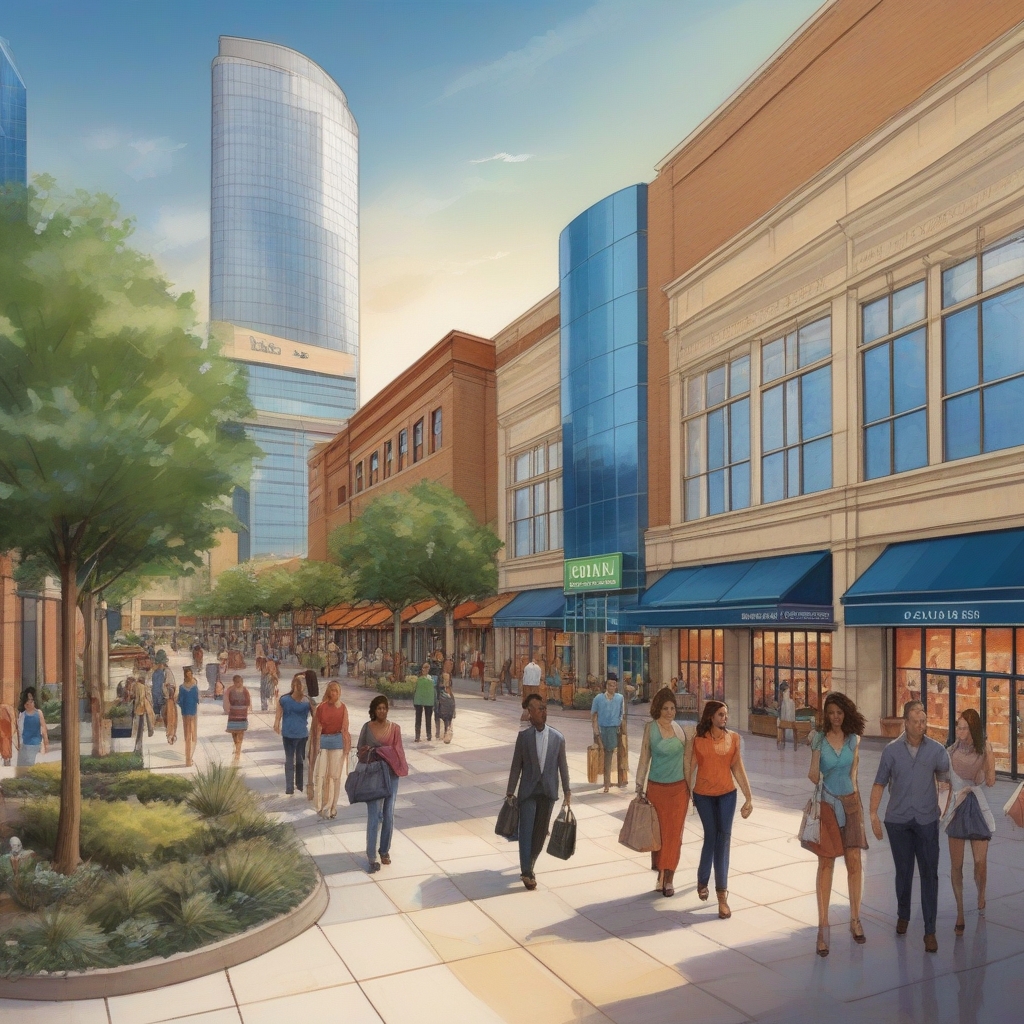/ Aug 08, 2025
Trending
LARealEstateBrief 2024.

“`html
The Dallas-Fort Worth (DFW) area is renowned for its vibrant and dynamic retail real estate market, a hub of economic growth and urban development. As one of the top retail centers in the United States, the sustainability and future trajectory of the DFW retail real estate scene are a hot topic. To shed light on this subject, industry expert Herb Weitzman offers his invaluable insights.
DFW’s retail market is teeming with opportunities and challenges alike. With a diverse array of shopping destinations, from luxury malls to unique local boutiques, the region showcases a blend of traditional and modern retail experiences. A critical question arises: is the current state of this bustling market sustainable in the long run? Herb Weitzman, a leading figure in commercial real estate, provides some clarity.
Despite the positive outlook, the DFW retail real estate market is not without its hurdles. Here are some obstacles that retailers and developers need to navigate:
With the influx of new retail spaces, competition is more intense than ever. Retailers must strive for differentiation to secure their share of consumer spending. This calls for innovative concepts, exceptional customer service, and unique product offerings.
The rise of e-commerce has undeniably changed the retail industry’s landscape. Retailers in DFW must integrate online and in-store experiences to stay competitive. Successful players are those who offer seamless omnichannel experiences, thus encouraging consumers to engage in both physical and virtual shopping.
Another challenge is the escalating cost of doing business. From increased material costs for construction and renovation to labor and operational expenses, sustaining profitable margins is becoming more difficult.
Herb Weitzman, a seasoned real estate expert, sheds light on what makes DFW’s retail real estate market capable of sustained growth. According to Weitzman, several factors contribute to the market’s resilience:
Herb highlight the importance of adaptive reuse—transforming underutilized spaces into vibrant retail environments. This approach not only answers urban space challenges but also aligns with sustainability efforts by minimizing waste and construction impacts.
Weitzman emphasizes the growing trend of creating community-centric retail environments. By fostering social interactions and engagement, these spaces become essential parts of the community fabric, encouraging repeat visits and local loyalty.
According to Weitzman, flexibility in retail real estate is vital for adapting to changing consumer trends. With modular space designs and flexible lease terms, retailers can pivot quickly to meet consumer demands and preferences.
As we look to the future, the DFW retail real estate market is expected to continue its trajectory of growth and transformation. The market’s ability to innovate and adapt will largely determine its sustainability.
Retailers and developers who integrate sustainable practices will likely lead the way. From eco-friendly building practices to supporting local suppliers, the market’s commitment to sustainability could enhance resilience against economic and environmental challenges.
Retailers will continue to focus on creating unique, memorable experiences that draw shoppers in-store. By offering interactive, engaging environments, retailers can differentiate themselves and foster stronger customer relationships.
In conclusion, the DFW retail real estate market presents significant promise. Herb Weitzman’s expert analysis underscores the importance of innovation, flexibility, and community orientation for sustaining the region’s retail prosperity. As the market evolves, embracing these principles will be key to navigating the challenges and seizing the opportunities that lie ahead.
“`
Get the latest LA real estate news, market trends, and expert tips. Subscribe for weekly updates to stay informed and ahead in the LA property market.
Copyright LARealEstateBrief. 2024. DRE license #02134518